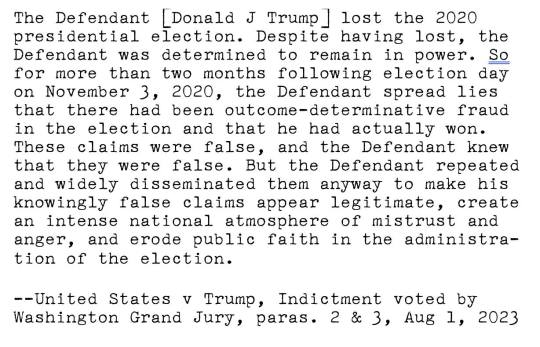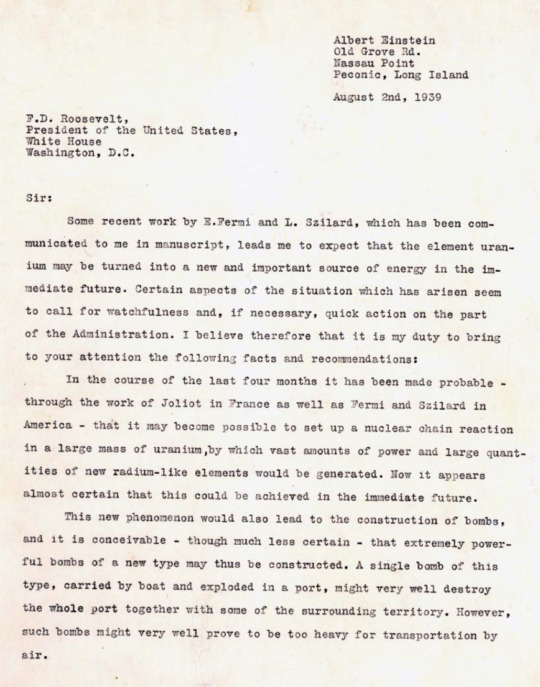#congress beats the market
Text
Fresh Calls for Stock Trading Ban After US Lawmakers Beat Market in 2023
0 notes
Text
California’s residents have taken a beating from investor-owned utility companies and the CPUC over the past year. Major utility PG&E passed a 13% hike to electricity rates, adding on to what are already among the highest in the nation.
The state passed NEM 3.0, a cut to solar export compensation which sunk the state’s once-thriving rooftop solar market, leading to nearly 20,000 jobs lost and numerous solar installer bankruptcies.
CPUC then moved to shut down the emergent community solar market, which offered a pathway for renters and those with unsuitable rooftops for solar to save on electricity bills. Proponents of community solar legislation say it would enable bill savings of about $300 per year, with total ratepayer savings reaching $9 billion.
13 notes
·
View notes
Text
This day in history

#15yrsago Best practices for economic collapse: Long Now talk https://cluborlov.blogspot.com/2009/02/social-collapse-best-practices.html
#10yrsago San Francisco police beat up and detain Good Samaritans who call 911 and perform first aid on accident victim https://medium.com/indian-thoughts/good-samaritan-backfire-9f53ef6a1c10
#10yrsago Dems appoints RIAA’s man in Congress to House Judiciary Subcommittee on Courts, Intellectual Property and the Internet https://www.techdirt.com/2014/02/12/another-friend-recording-industry-joins-house-subcommittee-courts-intellectual-property-internet/
#10yrsago Senator Rand Paul sues US government over NSA spying https://arstechnica.com/tech-policy/2014/02/us-senator-sues-president-obama-to-stop-nsa-metadata-dragnet/
#5yrsago Who can forget those scenes in Count Zero where they all stand around eating soup? https://memex.craphound.com/2019/02/14/who-can-forget-those-scenes-in-count-zero-where-they-all-stand-around-eating-soup/
#5yrsago Bossfight: Allstate Insurance enters the Right to Repair fight, loans its lobbyists to fight Apple https://www.vice.com/en/article/nex3dz/insurance-giant-allstate-buys-icracked-phone-repair-company-joins-right-to-repair-movement
#5yrsago Installing a root certificate should be MUCH scarier https://www.eff.org/deeplinks/2019/02/powerful-permissions-wimpy-warnings
#5yrsago Ex-NSA whistleblower says she and other US ex-spooks targeted Americans on behalf of UAE https://www.reuters.com/investigates/special-report/usa-spying-raven/
#5yrsago LA Times demands that reporters sign away rights to books, movies and other works they create while working at the paper https://latguild.com/news/2019/2/12/press-release-los-angeles-times-guild-pushes-back-against-managements-proposed-intellectual-property-policy
#5yrsago Even without explicit collusion, pricing algorithms converge on price-fixing strategies https://cepr.org/voxeu/columns/artificial-intelligence-algorithmic-pricing-and-collusion
#5yrsago Most adults are incapable of understanding most online terms of service https://papers.ssrn.com/sol3/papers.cfm?abstract_id=3313837
#5yrsago How Epson’s patent trolling is killing the EU market for replacement ink https://www.openrightsgroup.org/blog/patently-unfair-epson-takedowns-continue/
#5yrsago The Final Version of the EU’s Copyright Directive Is the Worst One Yet https://www.eff.org/deeplinks/2019/02/final-version-eus-copyright-directive-worst-one-yet
#5yrsago Beyond GIGO: how “predictive policing” launders racism, corruption and bias to make them seem empirical https://papers.ssrn.com/sol3/papers.cfm?abstract_id=3333423
#1yrago Nathan J. Robinson's "Responding to the Right: Brief Replies to 25 Conservative Arguments" https://pluralistic.net/2023/02/14/nathan-robinson/#arguendo
12 notes
·
View notes
Note
Will gladly be taking Texas recommendations if you're feeling it! Any tourist areas to restaurants (specifically beef if you can bec I've been meaning to try 👀)
I’ll be the first prideful Texan to admit that the only good part of Texas BBQ is our brisket (beef). Other states beat us on chicken and pork, if that’s more your style. But we know beef. God, uh, if you want good brisket specifically I’m going to recommend Black’s BBQ or Kreuz Market (which are actually both in Lockhart), Stiles Switch (BBQ). Of course, the best brisket is actually from some random friend of a friend of a friend of the family that just has the most insane brisket rub imaginable and they would kill to keep it a secret.
Austin-specific recommendations for food: Culinary Dropout (The Domain), Jardin Corona, Clay Pit, Quality Seafood, Dirty Martin’s, Top Notch, Home Slice Pizza, Kerbey Lane Cafe, Torchy’s (though that went from an Austin original to a chain real quick), Texas Chili Parlor (hear me out; the food isn’t what it used to be, but it’s the spot all the Texas legislators go to after session, so if you want a weirdly intimate knowledge of our state’s goings-on, it’s funny, however, legislature must be in session and Texas does not have a full-time legislature).
Austin-specific recommendations for visiting: Blanton Museum of Art, Texas Science & Natural History Museum, the Bob Bullock Texas State History Museum, Mount Bonnell, seeing the bats fly out from under Congress Avenue Bridge at sundown (best in summer), walking South Congress Avenue, the Capitol Building, any of Austin’s hike & bike trails, kayaking or taking a paddle board down Lady Bird Lake (aka Town Lake), Zilker Park, and Austin’s biggest attraction for decades has been our live music scene once the sun goes down and the lights come out!
8 notes
·
View notes
Text

LETTERS FROM AN AMERICAN
August 2, 2023
HEATHER COX RICHARDSON
AUG 3, 2023
There have been more developments today surrounding yesterday’s indictment of former president Trump for conspiring to defraud the United States, conspiring to disenfranchise voters, and conspiring and attempting to obstruct an official proceeding as he tried to overturn the results of the 2020 election and install himself in office over the wishes of the American people.
Observers today called out the part of the indictment that describes how Trump and Co-Conspirator 4, who appears to be Jeffrey Clark, the man Trump wanted to make attorney general, intended to use the military to quell any protests against Trump’s overturning of the election results. When warned that staying in power would lead to “riots in every major city in the United States,” Co-Conspirator 4 replied, “Well…that’s why there’s an Insurrection Act.”
The Insurrection Act of 1807 permits the president to use the military to enforce domestic laws, invoking martial law. Trump’s allies urged him to do just that to stay in power. Fears that Trump might do such a thing were strong enough that on January 3, 2021, all 10 living former defense secretaries signed a Washington Post op-ed warning that “[e]fforts to involve the U.S. armed forces in resolving election disputes would take us into dangerous, unlawful and unconstitutional territory.”
They put their colleagues on notice: “Civilian and military officials who direct or carry out such measures would be accountable, including potentially facing criminal penalties, for the grave consequences of their actions on our republic.” Josh Marshall at Talking Points Memo recalled today that military leaders told Congress they were reluctant to respond to the violence at the Capitol out of concern about how Trump might use the military under the Insurrection Act.
Political pollster Tom Bonier wrote: “I understand Trump fatigue, but it feels like the president and his advisors preparing to use the military to quash protests against his planned coup should be bigger news. Especially when that same guy is in the midst of a somewhat credible comeback effort.”
On The Beat tonight, Ari Melber connected Trump Co-Conspirator John Eastman to Senator Ted Cruz (R-TX). Just before midnight on January 6, 2021, after the attack on the U.S. Capitol, Eastman wrote to Pence’s lawyer to beg him to get Pence to adjourn Congress “for 10 days to allow the legislatures to finish their investigations, as well as to allow a full forensic audit of the massive amount of illegal activity that has occurred here.” On the floor of the Senate at about the same time, Cruz, who voted against certification, used very similar language when he called for “a ten-day emergency audit.”
An email sent by Co-Conspirator 6, the political consultant, matches one sent from Boris Epshteyn to Trump lawyer Rudy Giuliani, suggesting that Epshteyn is Co-Conspirator 6. The Russian-born Epshteyn has been with Trump’s political organization since 2016 and was involved in organizing the slates of false electors in 2020. Along with political consultant Steve Bannon, Epshteyn created a cryptocurrency called “$FJB, which officially stands for “Freedom. Jobs. Business.” but which they marketed to Trump loyalists as “F*ck Joe Biden.” By February 2023, Nikki McCann Ramirez reported in Rolling Stone that the currency had lost 95% of its value.
Since the indictment became public, Trump loyalists have insisted that the Department of Justice is attacking Trump’s First Amendment rights to free speech. Indeed, if Giuliani’s unhinged appearance on Newsmax last night is any indication, it appears that has been their strategy all along. Aside from the obvious limit that the First Amendment does not cover criminal behavior, the grand jury sidestepped this issue by acknowledging that Trump had a right to lie about his election loss. It indicted him for unlawfully trying to obstruct an official proceeding and to disenfranchise voters.
Today, Trump’s former attorney general William Barr dismissed the idea that the indictment is an attack on Trump’s First Amendment rights. Barr told CNN’s Kaitlan Collins: “As the indictment says, they're not attacking his First Amendment right. He can say whatever he wants. He can even lie. He can even tell people that the election was stolen when he knew better. But that does not protect you from entering into a conspiracy. All conspiracies involve speech. And all fraud involves speech. Free speech doesn't give you the right to engage in a fraudulent conspiracy.”
Rudy Giuliani has his own troubles in the news today, unrelated to the attempt to overturn the results of the 2020 election. His former assistant Noelle Dunphy is suing him for sexual harassment and abuse, and new transcripts filed in the New York Supreme Court of Giuliani’s own words reveal disturbing fantasies of sexual domination that are unlikely to help his reputation. (Historian Kevin Kruse retweeted part of the transcript with the words, “Goodbye, lunch.”)
The chaos in the country’s political leaders comes with a financial cost. According to Fitch Ratings Inc., a credit-rating agency, the national instability caused by “a steady deterioration in standards of governance over the last 20 years” has damaged confidence in the country’s fiscal management. Yesterday it downgraded the United States of America’s long-term credit rating for the second time in U.S. history.
Fitch cited “repeated debt-limit political standoffs and last-minute resolutions,” “a complex budgeting process,” and “several economic shocks as well as tax cuts and new spending initiatives” for its downgrade. The New York Times warned that the downgrade is “another sign that Wall Street is worried about political chaos, including brinkmanship over the debt limit that is becoming entrenched in Washington.”
The timing of the downgrade made little sense economically, as U.S. economic growth is strong enough that the Bank of America today walked back earlier warnings of a recession. Treasury Secretary Janet Yellen noted that the key factors on which Fitch based its downgrade had started in 2018 and called the downgrade “arbitrary.” The editorial board of the Washington Post called the timing “bizarre.” But the timing makes more sense in the context of the fact that House Republicans could not pass 11 of 12 necessary appropriations bills before leaving for their August recess.
The White House said it “strongly disagree[d]” with the decision to downgrade the U.S. credit rating, noting that the ratings model Fitch used declined under Trump before rebounding under Biden, and saying “it defies reality to downgrade the United States at a moment when President Biden has delivered the strongest recovery of any major economy in the world.” But it did agree that “extremism by Republican officials—from cheerleading default, to undermining governance and democracy, to seeking to extend deficit-busting tax giveaways for the wealthy and corporations—is a continued threat to our economy.”
LETTERS FROM AN AMERICAN
HEATHER COX RICHARDSON
#Trump indictment#political#Letters From An American#Heather Cox Richardson#conspiracy#Trump Indictment#co-conspirators
10 notes
·
View notes
Text
Wednesday, February 21, 2024
High-profile Republicans head for the exits amid House GOP dysfunction
(CNN) The GOP is facing a grand old exodus as the House of Representatives continues to struggle through one of the most turbulent sessions of Congress ever. So far, the 118th Congress has seen a historically-long race for speaker, the ousting of that speaker, an expulsion of a member, and a multitude of failed votes despite the GOP’s majority. 23 GOP Representatives have resigned or declared that they won’t be running for re-election, including five House committee chairs. Some Republicans are not concerned. “Brain drain? Why don’t you survey the country and see if there is any brain to drain in Congress. Congress has a 20% approval rating. Most of what we do to the country is bad,” said House Freedom Caucus Chairman Bob Good. “I think the retirements are a wonderful thing … I have no concerns, zero concerns. We probably need a few more retirements.”
The Great Compression: Smaller Houses
(NYT) America is the land of the free, the home of the brave, and the country where everything is just bigger. At least, that used to be true—now, as the cost of materials, land, and mortgages continue to rise, people are looking into smaller and smaller houses for a chance at home ownership. Builders have begun constructing ever-smaller homes (sometimes the size of studio apartments) in recent years as part of an effort to tap into the first-time home buyer market. “Their existence is telling,” said one economist. “All the uncertainty over the past few years has just reinforced the desire for homeownership, but land and material prices have gone up too much. So something has to give, and what builders are doing now is testing the market and asking what is going to work.” Suburban developments across the country have joined the trend, building more 800-square-foot “tiny homes” and cutting back on the 2,000-square-foot, two-story cul-de-sac houses that Americans have been sold for decades.
Why some travelers are skipping the US: ‘You guys are not afraid of this?’
(USA Today) What Uneaka Daniels experienced the last couple of times she was in the United States was enough to keep her away for a long time. Bermuda-born and raised Daniels was in Atlanta in 2019 and decided to get her hair done. On her way to the salon, she stopped a man to ask for directions. Suddenly, everyone ducked. It was a drive-by. “I could actually see the gun and see it being fired,” she told USA TODAY. “The people on the street acted…as if it didn’t happen, and I’m here trying to crouch behind a tree. I said, ‘You guys are not afraid of this,’ and he said, ‘It happens so often.’” Besides this experience and another, Daniels has been turned off by the U.S. due to the rise of mass shootings and rates of homelessness. For the past four years, she’s avoided travel to the U.S. A growing number of international travelers are opting out of trips to the U.S. There were 12 million fewer visitors in 2023 than in 2019, according to a recent study by the U.S. Travel Association and EuroMonitor International. The U.S. ranked 17th out of the top 18 travel markets, slotting in just above China, with one major factor being safety following visa time barriers and the strength of the U.S. dollar.
Pro-Israel group targets Post reporter
(Semafor) Pro-Israel groups, deeply critical of American news outlets such as the Washington Post over their coverage of the war in Gaza, have been working in public and behind-the-scenes to discredit specific journalists seen as biased against Israel. The 10/7 Project, a consortium of five Jewish organizations, has been keeping tabs on reporters that it felt were reporting and tweeting unfairly about Israel, and putting pressure on major national news organizations to punish or remove these reporters from the beat. In particular, the group has singled out the Washington Post and its foreign correspondent Louisa Loveluck, who has covered the war in Gaza with an emphasis on Palestinian civilians impacted by the violence. The group has compiled a dossier complaining about everything from her current reporting to her past tweets and participation in college activism against tuition fees in the UK in an effort to get her taken off the story of Israel’s war with Hamas.
Afghans blocked from UK by special forces’ veto
(BBC) Afghan commandos accompanied British special forces on some of the most dangerous missions of the war in Afghanistan. When the Taliban swept to power in August 2021, soldiers in these units were among the groups most at risk of reprisals. They were eligible to apply for resettlement to the UK. But leaked documents seen by the BBC show UK special forces rejected hundreds of applications, despite some containing compelling evidence of service alongside the British military. Dozens have reportedly been beaten, tortured, or killed by the Taliban since. “I was sure that my British colleagues and friends, who we worked for several years alongside, would help me to evacuate to safety. Now I feel that the sacrifices I made have been forgotten,” one told the BBC. “I have been left alone in the midst of hell.” At the time the applications were vetoed, UK Special Forces were at the centre of an independent inquiry, to which Afghan Special Forces members could have been asked to provide evidence, had they been in the UK.
How much is a baby worth? A $75,000 bonus, this South Korean firm says.
(Washington Post) Successive South Korean governments have tried pretty much everything to try to persuade women to have babies. Now corporate South Korea is getting in on the act, trying to stave off a demographic crisis that could see the country’s workforce halve within 50 years. Some are pledging millions of dollars in bonuses for their staff who become parents. “We will continue to do what we can as a company to solve the low-birth issue,” Lee Joong-keun, the chairman of Booyoung Group, a Seoul-based construction company, said last week after awarding a total $5.25 million to his employees for 70 babies born since 2021. Both male and female employees at Booyoung are eligible for a $75,000 payout each time they have a baby—no strings attached. This development has come about as South Korea’s fertility rate—the average number of children a woman has over her lifetime—has plummeted to be the lowest in the world, at 0.78 in 2022. That means the population is aging rapidly. By 2072, half the population will be over 65—meaning companies big and small will have trouble finding people of working age to employ.
The sailor straining US-Japan relationship
(BBC) US Navy officer Ridge Alkonis was sentenced in Japan to three years jail in 2021 for killing two Japanese citizens in a car accident. His release on parole from a US prison after less than two years, following a pressure campaign from his family, drew public anger in Japan. The incident highlighted the resentment and frustration Japanese people hold against the 54,000 US servicemen in the country. Since the US-Japan Status of Forces Agreement (SOFA) was inked in 1960—enabling the deployment of US military forces in the country—there have been hundreds of criminal cases involving US military personnel. Few have forgotten the infamous 1995 incident where three servicemen raped a 12-year-old Okinawan girl, sparking months-long protests.
Israel May Put New Restrictions on Visiting Aqsa Mosque as Ramadan Nears
(NYT) The Israeli government was locked in debate on Monday on whether to increase restrictions on Muslims’ access to an important mosque compound in Jerusalem during the holy month of Ramadan, leading to predictions of unrest if the limits are enforced. On Sunday, Israeli cabinet ministers debated whether to bar some members of Israel’s Arab minority from attending prayers at the Aqsa Mosque compound, according to the two officials. Israel has long limited access to Al Aqsa for Palestinians from the Israeli-occupied West Bank, and since the start of the war in Gaza, it has imposed extra restrictions on Arab citizens and residents of Israel. Some had hoped those limits would be largely lifted for Ramadan, which is expected to begin around March 10—but the talk now is of increasing them, instead. Dan Harel, a former deputy chief of staff in the Israeli military, said in a radio interview that such a move would be “unnecessary, foolish and senseless” and might “ignite the entire Muslim world.” One Arab Israeli lawmaker, Waleed Alhwashla, said on social media that it would be “liable to pour unnecessary oil on the fire of violence.”
Israel orders new evacuations in northern Gaza, where UN says 1 in 6 children are malnourished
(AP) Israel ordered new evacuations from parts of Gaza City on Tuesday, as a study led by the U.N. children’s agency found that one in six children are acutely malnourished in the isolated and largely devastated north of the territory, where the city is located. The report finds deepening misery across the territory, where Israel’s air and ground offensive, launched in response to Hamas’ Oct. 7 attack, has killed over 29,000 Palestinians, obliterated entire neighborhoods and displaced more than 80% of the population. On Tuesday, the military ordered the evacuation of the Zaytoun and Turkoman neighborhoods on the southern edge of Gaza City, an indication that Palestinian militants are still putting up stiff resistance in areas of northern Gaza that the Israeli military said had been largely cleared weeks ago.
Crew abandon UK-registered cargo ship after Houthi attack off Yemen
(BBC) On Sunday night, a Belize-flagged, British-registered cargo vessel was struck by Houthi missiles, causing the crew to abandon ship. According to security firms, the ship was carrying “very dangerous,” highly explosive fertilizer. A spokesman for the Houthis has claimed that the ship was forced to a “complete halt” thanks to the attack, and the owners are reportedly considering towing the vessel.
Big stink in Cape Town
(AP) What stinks? Authorities in Cape Town launched an investigation Monday after a foul stench swept over the South African city. City officials inspected sewage facilities for leaks and an environmental health team was activated before the source of the smell was discovered: a ship docked in the harbor carrying 19,000 live cattle from Brazil to Iraq. The ship was due to depart soon, likely to the relief of residents.
When Eyes in the Sky Start Looking Right at You
(NYT) For decades, privacy experts have been wary of snooping from space. They feared satellites powerful enough to zoom in on individuals, capturing close-ups that might differentiate adults from children or suited sunbathers from those in a state of nature. Now, quite suddenly, analysts say, a startup is building a new class of satellite whose cameras would, for the first time, do just that. “We’re acutely aware of the privacy implications,” Topher Haddad, head of Albedo Space, the company making the new satellites, said in an interview. His company’s technology will image people but not be able to identify them, he said. Anyone living in the modern world has grown familiar with diminishing privacy amid a surge security cameras, trackers built into smartphones, facial recognition systems, drones and other forms of digital monitoring. But what makes the overhead surveillance potentially scary, experts say, is its ability to invade areas once seen as intrinsically off limits. “This is a giant camera in the sky for any government to use at any time without our knowledge,” said Jennifer Lynch, general counsel of the Electronic Frontier Foundation. “We should definitely be worried.”
2 notes
·
View notes
Text
I think I might be cantering now but I don't want to get my hopes up
LK 114: The Penultimate Julius
(pt1)(pt2)(pt3)(pt4)(pt5)

....feel like this is a bad judgement call.

NERDS

Dickinson

Benji looks highly unamused but unsurprised that his nosiest interns weaseled their way into secret meetings again.



How much cocaine were they serving at the Continental Congress.

Oh my god. Look at him. Look at the puppy. He's so thrilled.

Mr Rodney I know you have covid so you're a little delirious rn, but thieves don't typically knock before breaking and entering.



So hell, then.

No, there's a fire sale going on in Market Street and he wanted to let you know OF COURSE its about Independency.

You have? A Cart? Why can't you put him in the cart? Why does he have to ride?

Alrighty then, 2 Fast 2 Furious.

Well go after him! Make sure he doesn't die!



If any non-Americans were wondering why Americans are so bad about working when we're sick. We learn this shit from a young age. I mean, context and all, it was a Big Fucking Deal so I'm not going to shit on Rodney for doing this, it was the Thing To Do and also a very specific situation, but this also has a side-effect of glorifying working while dangerously ill/pushing forward when you really should be resting.

How are y'all so beat up??? Did you take a topple or smth???


Classic Congress move.


Web of lies!
I wonder how mad the real Adams was every July 2 after this.


And colorful explosives. Saltpeter explosives, John!


No fun allowed in this Congress.

Damn Sarah is getting INTO this reading of the declaration. Sarah honey its getting really hard for any of us to believe that you're a loyalist. We're worried you're going to sprain something with all those mental gymnastics you're doing.
#liberty's kids#james hiller#sarah phillips#amrev#I'm sorry I'm spamming these tags#tricorn on the cob watches lk and makes inane commentary#tricorn watches
4 notes
·
View notes
Text
When you think you want to help
The impulse to “help” people you see as needing your “help” can be strong

Haiti has fascinated people for more than 200 years. As the first Black republic—and as the first Black nation to throw off the chains of European enslavement—it has represented self-achievement and self-dignity to the nations of the world who have groaned under the boot of colonialism. It’s a fact of history that nations in the Caribbean as well as Central and South America have been influenced by Haiti and its thirst for freedom and independence—several flags for these nations were designed by or inspired by Haitians as these nations worked together with Haiti to achieve freedom. It’s not a well-known fact, but in the early days of America’s struggle for independence, Haiti sent its soldiers to America to fight with Americans against the British.
Unfortunately, the United States was more deeply committed to creating an independent nation that used enslaved people as its greatest source of income and treated them as their greatest source of exploitable wealth, and the threat of an independent Black republic caused the new American government to respond to Haiti’s independence by tightening the screws far more harshly upon its own people, slave or free, to keep enslaved people in their place, and keep white Americans from trying to eliminate enslavement. The Slave Codes that started in the 1600s were greatly strengthened as a response to Haiti’s independence as the fear was that enslaved people in America might see what enslaved people in Haiti did—they beat the French in warfare!—and so we see laws in states and in Congress forbid freedom, forbid the distribution of literature that encouraged freedom, forbid free states from protecting escaped enslaved people who had absconded with valuable property—their own bodies!—and laws that tried to keep America as a perpetual slave state.
After Haiti declared independence in 1804, America did not recognize it as a sovereign nation until the presidency of Abraham Lincoln. Yep. About 60 years of stubbornness and fear because of the threat of Black independence.
And ever since Haiti’s independence, the powerful nations in Europe, as well as the United States, have treated Haiti as a trouble-making country that is fit only to be a source of resources and wealth. France has continued to meddle with Haiti, starting from its demand for reparations to pay back its enslavers for the loss of their property—the bodies of the enslaved Haitians as well as the land that those Haitians worked upon—and the U.S. has tried to make Haiti one of its agricultural colonies to the point of invading Haiti in the early 1900s to set up a colonial government that pushed free Black Haitians back into enslavement at the point of a gun held by the Marines that enforced American “law.”
For twenty years the U.S. was a foreign invader trying to “fix” Haiti to make it more amenable to American political objectives. When the U.S. left, it left the nation in political shambles, having decimated the ranks of Haitians who might have risen up naturally as leaders, and the U.S. has continued to meddle, doing things to “help” Haiti by attempting to make Haiti a market for American-made goods and American-grown agricultural products. Haiti, which once had a thriving rice export industry, saw its industry collapse when cheap, federally subsidized American rice was forced upon it. Same with sugar and clothing—Haiti was and still is treated as a dumping ground for used clothing, a policy that started “with good intentions” in the 1960s to the point that used clothing is called kennedys.
Haiti has been treated as a pariah by powerful European nations as well as the U.S., and that treatment has continued to wreak the natural self-governance of Haiti. Even now the Haitian capital is wracked by gangs as the government was decapitated by foreign mercenaries who assassinated their president and by foreign interests that flood the capital with foreign-supplied guns and ammunition.
It seems that Haiti should be allowed to achieve self-governance without foreign powers trying to control it and with positive help from foreign interests who truly do want to establish a free and self-governing nation.
So what is it that should be done? Many people have ideas. I have ideas.
But Haiti is an independent nation with its own complex politics and national culture, so I try to stay out of suggesting what Haiti should do because—well, a lot of nations and people outside Haiti have been doing that for over 200 years and those actions have caused great pain to Haiti and Haitians. I don’t want to inadvertently push policies that the U.S. wants upon Haiti, and I similarly do not want to be pushing policies that other nations want.
For example, I see the lack of education as a primary deficit in Haiti. Educating people well will directly cause improvements because smart people with education can do great things. So I like the ideas that I see of improving literacy and setting up schools. BUT Haitians are doing this already, involving very smart, motivated Haitians who are doing things for themselves. If someone feels a need to “help” Haiti, then I’m of the opinion that the best way to do this is to perform due diligence to find those people and organizations that are indigenous to Haiti, supported by Haitians, and owned or operated by Haitians, and support them with money so that those organizations and the Haitians who run them can do the right thing for themselves.
I was watching a video last year about a non-profit organization in America that sent doctors to rural Haiti to set up temporary clinics and also work in existing medical clinics “out in the fields,” as it were. What I heard from the Haitians in the video was “Stop just sending us help when you feel the urge to be ‘nice’—teach us to do this for ourselves.” (And the video was also honest enough to let the helpers express themselves as they started to become aware of what Haitians wanted.)
That resonated with me quite a bit. The way to “help” Haiti is to enable Haitians to do for themselves. It’s way messier than just going in and doing it the “right” way according to our standards, but enabling Haitians to do for themselves allows them the dignity of self-effort and self-achievement.
I fund (through donations) a few of these efforts for education and improvement. I try to find those groups that either arise directly in Haiti to self-organize or that are run by Haitians that might be funded by outside donations. The groups that I fund are doing things that those Haitians who run them want to do. Some of them are doing general work to improve farming methods or running land restoration projects. Some of them do work to push for adult literacy. Some push for childhood education. When I see Haitians doing this, I support them.
Haiti is more than crowded with NGOs (non-governmental organizations) and “well-meaning” foreigners who treat Haiti like a nursery full of helpless children. And even well-meaning foreigners with good ideas that accomplish good work for Haiti are treated with suspicion because of their association with meddlers. What I learn from that is that it is abusive and demeaning to come in and tell Haitians what to do as if foreigners just know better—it’s way healthier and more helpful to support Haitians where they are.
If you see Haiti and you have the urge to “help,” I would suggest that Haitians don’t really need you to come help them. Haitians, like all humans, have great intelligence, drive, creativity, and their own sense of self-worth. If you want to help, find and support Haitians who are doing that work. It doesn’t give you a place to be centered and it won’t provide photo opportunities of you “helping” Haitians.
But it will help Haitians by letting them do for themselves.
Image of “Mythical Haiti” generated by Bing AI.
4 notes
·
View notes
Text
Washington worries about everything related to China—from its expanding military might to its rapid technological gains to its deeper engagement with developing countries. U.S. officials, not to mention an army of pundits, also point with rising alarm to the Chinese central bank’s launch of the digital yuan this year as the latest sign that the United States is falling behind. In the U.S. Congress, Republican and Democratic legislators, who agree on very little else, are united on the pressing need for new legislation to ensure the U.S. dollar doesn’t fall further behind in a “digital assets space race.”
Creating a digital dollar is the right goal, but doing it to counter China is the wrong reason. The real challenge to the United States’ central role in the global financial system comes less from Beijing than from dogecoin and other homegrown, unregulated cryptocurrencies. A plan to create a digital dollar that focuses only on beating China risks overlooking the strengths that make the dollar so attractive today and the opportunities for new technologies to magnify those strengths.
An individual asset like dogecoin, the most famous of the cryptocurrency memes, may not itself pose a threat. But the rapidly expanding array of alternative digital assets and “stablecoins”—cryptocurrencies backed by a major currency or precious metal—is about to shake the foundations of the global financial system, with important consequences for market stability, economic growth, and U.S. foreign policy. Even if there were no Chinese alternative already rolled out, Washington should be pushing hard to develop a digital dollar that takes advantage of the dollar’s status as a global reserve currency and the technological revolution at hand.
What is a digital dollar? No, it’s not the money you already see online in your bank account, which is in fact a record of your bank’s obligations to you. Rather, a digital dollar is a cryptographic representation of the money the U.S. Federal Reserve issues today in the form of cash and bank reserves.
The dawning age of blockchain innovation allows this digital money to move as quickly and cheaply as an email but with the privacy and security of a bank transfer. In effect, a digital dollar would be a version of cash in your pocket that you could transfer directly to someone halfway around the world at virtually no cost and without involving any intermediary, such as a bank.
Critics claim cryptocurrencies solve a problem that doesn’t really exist. Money moves just fine, thank you very much. (Naturally, banks tend to say this.) There are lots of ways to transfer money on your phone. But the phone in your purse or pocket may be the best analogy to crypto innovation: There were lots of convenient ways to make calls when the first mobile devices appeared, but by now, voice calls are the least useful thing about them. Mobile telephony has reimagined whole swaths of human activity—from news delivery and ride-hailing to entertainment and company meetings.
Even though privately issued currencies have worked in narrow historical circumstances, the United States’ tumultuous free banking era in the 19th century underlined the importance of government-issued alternatives. A world with thousands of alternative methods of payment sounds good to the political libertarian and the free market zealot. But it’s hardly clear how monetary policy, payment flows, and law enforcement operate smoothly in this environment. Crypto innovation that will transform money as a unit of account, store of value, and means of payment also requires rules to maintain confidence. It’s no surprise that cryptocurrencies imploded even faster than the stock market during the recent market crash.
Sweden’s central bank—the Riksbank—has moved rapidly to issue an e-krona because its officials were alarmed by the rapid disappearance of cash as consumers embraced—and banks encouraged—the convenience of cards swipes. China’s government has lots of reasons to roll out a digital yuan, but high on the list is a payments system that was dominated by two private sector giants, creating potential systemic risks. More than 100 other countries are also working on designs for their own official alternatives.
Why does the United States need a digital dollar? One simple argument is that it’s hard to imagine the dollar remaining a reserve currency while standing aside from the next major wave of financial modernization. The list of governments already incrementally shifting their reserves into other currencies because they fear the long reach of U.S. sanctions would surely accelerate if the dollar didn’t retain its indispensable global role during the coming era of distributed finance.
The United States derives enormous benefits from the dollar’s dominant status. Economically, these include revenues from seigniorage—the Fed’s profits from issuing dollars to meet widespread global demand for U.S. currency—and reduced borrowing costs for the U.S. government. Politically, the ability to sanction criminals, terrorists, and rogue governments has obviously become an important policy tool, as the financial sanctions against Russia show.
The global financial system, too, would benefit from a digital dollar. Issuers of stablecoins argue that they can offer better service and faster innovation in payments mechanisms than any central bank. But it chills the spine to contemplate a crisis on the scale of the Lehman Brothers collapse or COVID-19 without the Fed being able to inject huge amounts of the store of value that everyone trusts. And it’s hard to imagine dollars as that store of value in a future financial world defined by blockchain technology without a modern digital dollar issued directly by the Fed.
A third argument for moving quickly is less about preserving the advantages of the current system and more about advancing the values that the United States and its allies hold dear. Ultimately, the dollar’s attractiveness, as that of any currency, reflects the strengths of its political and economic system. People choose to hold dollars, ultimately, because the United States has a durable democratic system with a credible track record of protecting individual rights and property. While far from perfect, the world’s deepest financial markets are only possible because independent courts and regulators set the market rules regardless of political winds.
A digital currency offers the prospect of amplifying those values. China’s digital yuan has triggered questions about how it may tighten political control by tracking payments. A worthy digital dollar, by contrast, would actually emphasize privacy protections (especially for small private payments), financial inclusion (especially for the poorest households), and innovation (especially for creative fintech start-ups). A new digital dollar could, for example, better protect privacy as it enforces laws against money laundering. Rather than providing unsecured sensitive personal information to a financial services provider with every new account, proof of identity could be immutably stored in the blockchain, where it could be verified securely. A digital dollar would also improve financial inclusion, not least because it wouldn’t require a bank account for making non-cash payments.
The Fed’s experts are working hard on potential designs for a digital dollar, but Chair Jerome Powell suggested last week that he is not close to making a decision. He is undoubtedly right that it’s better “to get it right than be first,” but the United States is already far from first. It would be an enormous loss if it were actually last.
3 notes
·
View notes
Text

2024 / 15
Aperçu of the Week
"Artificial intelligence will have a more profound impact on humanity than fire, electricity and the internet."
(Sundar Pichai, CEO of Alphabet aka Google)
Bad News of the Week
Artificial intelligence has the potential to be a Sith lord. So on the dark side of the force. Artificial intelligence existed long before the term was coined. After all, it's nothing more than YouTube suggesting another clip similar to the one you've just watched. Since then, algorithms have accompanied us everywhere in life where probability calculation plays a role. Social media has always done nothing different when it presents certain suggestions based on personal likes and followed channels and not alternatives - because the algorithm calculates that we would like result A better than result B (this is called a bubble). This is why we all initially had the feeling that the internet was mainly made up of conspiracy theories.
As with any fundamental innovation, there is potential for good and bad. The US doesn't give a shit about the good dominating. They don't seem to care at all that someone could and should care about a leadership function that this potential benefits the population as a whole. Instead, the usual priority dominates - the buck rules. A look at the country's political personnel reveals why: there are more millionaires than non-millionaires in both chambers of Congress. What might be the reason for this...
Artificial intelligence will not be stopped. It is up to the people - in the USA primarily those who decide and provide - whether this powerful tool will be dangerous or useful. It's like a kitchen knife: you can cook dinner for your family or stab someone with it. In a society that is primarily geared towards maximizing profits, it is to be feared that AI will primarily be used to replace working people. Because AI never gets sick, never goes on vacation or to the bathroom and can work 24/7. When it comes to earning money, its triumphal march is unstoppable. But it will also have many human victims.
Good News of the Week
Artificial intelligence has the potential to be a Jedi knight. So on the bright side of the force. Artificial intelligence existed long before the term was coined. After all, it's no different when a washing machine recognizes that it's only half full and therefore uses less water. Since then, algorithms have accompanied us everywhere in life where probability calculation plays a role. Internet search engines have always done nothing different when they prioritize certain results over others based on personal surfing behavior - because the algorithm calculates that we would like result A better than result B. This is why we all had the feeling at the beginning that the internet consisted mainly of cat videos.
As with any fundamental innovation, there is potential for good and bad. Europe is trying to ensure that the good dominates. The European Union is also trying to establish regulatory guard rails in this market. Of course, technological development is faster than its administrative management by the public sector. But it is coming. Sooner or later. And it is already costing US companies billions - with the exception of TikTok, all the major players come from the Pacific coast of the USA. Because we insist on compliance with the rules of the game. And we can enforce them, because our market is too big and attractive to be ignored. Without the EU, Meta, for example, would not have a single employee on the lookout for fake news.
Artificial intelligence will not be stopped. It is up to the people - in Europe primarily those who use it and allow themselves to be used - whether this powerful tool will be dangerous or useful. It's like a hammer: you can use it to hammer a nail into the wall for a picture or to beat someone to death. In a society that sees itself as a social community, it is at least the hope that routine activities will be automated with AI so that human labor can be used for more complex services. So when it comes to unleashing potential, its triumphal march is unstoppable. So it really will bring added value for people.
Personal happy moment of the week
This week, some good political news is also my personal happy moment: for the first time, climate activists, in this case Swiss senior citizens, have been successful with a lawsuit for stricter measures against climate change before the European Court of Human Rights (ECtHR). According to the judges, Switzerland had violated the applicants' human rights. The authorities had not acted in time and had not adequately addressed climate change and its consequences.
A ruling that will have a signal effect. After all, legal liability for "failure to provide assistance" - because that's what it is when politicians do too little to combat climate change - is likely to have a greater impact than demonstrations by committed citizens who are probably already acting sustainably anyway. Bravo.
I couldn't care less...
...that O. J. Simpson died. May he rest wherever he belongs.
It's fine with me...
...that US President Joe Biden is considering a "waiver of further prosecution" of whistleblower Julian Assange. I don't like the Wikileaks founder - it's not just in relation to the Swedish sex abuse allegations that there is usually at least a little fire where there is smoke. But he has shown us the necessity of taking responsibility even where authorities like to hide behind non-disclosure agreements and secrecy rules. There is now a "whistleblower protection law" throughout the European Union. Without Assange, this would not exist.
As I write this...
...I am trying to come to terms with the fact that FC Bayern Munich will not be German soccer champions for the first time in 11 years (!). "Vicekusen" is history, as Bayer Leverkusen's victory on Sunday puts them unassailably ahead and they can celebrate their championship five matchdays before the end of the season. And Munich even have to worry about finishing at second place, as Stuttgart are level on points in the table. There are still five days left in the season - and, after a long time, a lively competition again. That's actually a good thing. But it still hurts a little.
Post Scriptum
Germany has a climate protection law. It has defined targets for reducing climate-damaging emissions, for example, in order to (yes, we still have to hope for it) keep global warming under control. The targets apply according to the respective thematic responsibility of the ministries, i.e. the corresponding savings in the transport sector are the responsibility of the Ministry of Transport. The current legal text stipulates that the respective ministry must take effective immediate measures if it is foreseeable that targets will not be met. This is the case with transport, not least because the ministers (not only in this legislative period) lack ambition, to put it mildly.
The current Minister of Transport, Volker Wissing of the Liberals, has been nagging about the law for some time now and would like to be able to continue to remain unambitious by allowing ministries to offset against each other. In other words, he wants to have his own deficits compensated by others. He just can't get a majority for that. And is now starting to threaten, there's no other way to put it. If the law doesn't change, he would have to order "comprehensive and indefinite driving bans". For all private vehicles, on all Saturdays and Sundays. I assume that electric cars (we're already driving our third) would be exempt, but that's only a small percentage anyway. The targets could not be achieved with milder measures such as a speed limit, which he has of course never tried.
The outcry from Germany as a nation of motorists was and is huge. Which was certainly exactly what he had intended. However, almost all of the political competition and political commentators are not crying out against the evil law, but against his plan. There is talk of a "political indictment". And that it is irresponsible to "stir up unfounded fears". The Liberals are currently polling below 5% nationwide, meaning they would no longer make it into parliament. If they carry on like this, that won't change. What would be their own fault.
#thoughts#aperçu#good news#bad news#news of the week#happy moments#politics#sundar pichai#ai#artificial intelligence#internet#good and evil#algorithm#innovation#humans#workforce#star wars#human rights#climate change#oj simpson#julian assange#whistleblower#fc bayern#germany#protection#transportation#cars#soccer#wikileaks#switzerland
0 notes
Text
US Stock Market Slides as Tech Giants Falter and Bitcoin Hits Record High
US stocks took a hit on Tuesday, moving away from record highs as uncertainty over interest rate cuts and troubles in tech giants like Apple and Tesla sparked caution in the market. The Nasdaq Composite led the declines, dropping about 1.7%, while the S&P 500 and Dow Jones Industrial Average also closed down over 1%.
Apple faced pressure after a report of a 24% sales drop in China, while Tesla continued to slump due to issues in its Gigafactory and shipment concerns. In the cryptocurrency world, Bitcoin hit a new all-time high before dropping 10% shortly after, now trading around $62,000 per coin. Investors are now watching closely for Fed Chair Powell's testimony to Congress for potential market direction.
Target beat earnings expectations, causing a spike in its stock, while Home Depot's weaker-than-expected earnings led to a drop in its shares. Market sentiment remains cautious as investors navigate inflation, interest rate speculations, and tech stock volatility, awaiting more guidance from the Federal Reserve. Powell's upcoming testimony may provide further insight into the central bank's plans and impact on the market's future direction.📉
Read the original article #stockmarket #inflation #FederalReserve #techstocks
0 notes
Text
The True History of Einstein's Role in Developing The Atomic Bomb
The Legendary Physicist Urged the U.S. to Build the Devastating Weapon During World War II—and Was Haunted by the Consequences. “I Did Not See Any Other Way Out.”
— By Erin Blakemore | February 21, 2024

A Mushroom Cloud Towers Over Nagasaki After the Detonation of an Atomic Bomb in 1945. Albert Einstein struggled with his role in the creation of the bomb and the devastation wrought by the U.S. bombing of Hiroshima and Nagasaki during World War II. Photograph By U.S Army Air Force Via Library of Congress
Albert Einstein is perhaps most famous for introducing the world to the equation E=mc2. In essence, he discovered that energy and mass are interchangeable, setting the stage for nuclear power—and atomic weapons.
His part in the drama of nuclear war may have ended there if not for a simple refrigerator.
In the 1920s, while living in Berlin, the physicist collaborated with Hungarian graduate assistant Leo Szilárd to develop and patent an energy-efficient fridge. While their design never went to market, the duo’s work ultimately embroiled Einstein—an avowed pacifist—in the race to create an atomic bomb during World War II.
Einstein would go on to argue vehemently to ban nuclear weapons worldwide in his later life, as he struggled with the deadly consequences of his scientific creation.
“His brilliance was also his downfall,” says National Geographic Explorer Ari Beser. “The revolution that came with the splitting of the atom requires a moral one as well.”
Einstein's Letter To Roosevelt


From the President’s Secretary’s Files. Einstein Letter. In the summer of 1939, a group of physicists, including several who hadfled Hitler’s Germany, met to discuss their fears of Germany developing a uranium-based weapon. It was decided that the best course of action was to immediately inform President Roosevelt of their concerns. Because Albert Einstein had a previous personal relationship with the Roosevelts and was internationally well-known for his expertise, a letter informing the President about the dangers of a nuclear chain reaction bomb was drafted for Einstein’s signature. This August 2, 1939 letter was personally delivered to the President on October 11, 1939 (the outbreak of the war intervened) by Alexander Sachs, a longtime economic adviser to FDR. After learning the letter’s contents, President Roosevelt told his military adviser General Edwin M. Watson, “This requires action.” The action FDR required would evolve into the Manhattan Project.
Even after Szilárd and Einstein ended their partnership over appliances, the two scientists stayed in touch.
In 1933, the same year Adolf Hitler became chancellor of Germany, Szilárd discovered the nuclear chain reaction—the process that unleashes the energy locked in atoms to create enormous explosions. And by 1939, he had became convinced that German scientists might be using current scientific developments to develop an atomic weapon.
So he approached his one-time colleague—then the world’s most famous scientist—and asked him to warn U.S. President Franklin Delano Roosevelt.
Szilárd visited Einstein in New York with two fellow refugees, Hungarian physicists Edward Teller and Eugene Wigner. When they told him about the possibility of a nuclear chain reaction, Einstein was shocked at the danger posed by his 1905 special theory of relativity.
“He certainly was not thinking about this theory as a weapon,” says Cynthia Kelly, president of the Atomic Heritage Foundation, a nonprofit organization she founded to preserve and interpret the Manhattan Project and its broader legacy. But “he quickly got the concept.”
Together with the other scientists, Einstein drafted a letter to Roosevelt that warned of what might happen if Nazi scientists beat the United States to an atom bomb.
“It appears almost certain that [a nuclear chain reaction] could be achieved in the immediate future,” he wrote, sounding the alarm on “extremely powerful bombs of a new type,” and advising that Roosevelt fund an initiative to research atomic energy.
Roosevelt took the warning seriously. On October 21, 1939, two months after receiving the letter and just days after Germany’s invasion of Poland, the Roosevelt-appointed Advisory Committee on Uranium met for the first time. It was the forerunner of the Manhattan Project, the top-secret government project that eventually invented a working atom bomb.
A Troubled Legacy
The committee was only given $6,000 in funding, so Einstein continued writing to the president, assisted by Szilárd, who wrote large portions of the letters. One letter even warned that Szilárd would publish key nuclear findings in a scientific journal if the initiative was not better funded.
In this way, Einstein helped spark the Manhattan Project, says Kelley, but “his actual involvement was very marginal.” The FBI file on the outspoken scientist—who openly criticized racism, capitalism, and war—would eventually grow to over 1,800 pages.
“In view of his radical background,” the FBI wrote, “this office would not recommend the employment of Dr. Einstein on matters of a secret nature.” In the end, Einstein never received security clearance to work on the Manhattan Project.
Still, his name is forever connected to the weapon born of his greatest discovery. He was devastated by news of the Hiroshima bombing—and humiliated by a TIME cover from 1946 that showed him in front of a mushroom cloud emblazoned with his famous equation.
Though Einstein worked to warn the world about the perils of nuclear proliferation for the rest of his life, he struggled to make sense of his responsibility.
“He is the father” of the atom bomb, says Beser, who is the grandson of the only U.S. serviceman aboard both planes that carried the atomic bombs to Japan.
Beser uses his storytelling to illustrate the aftermath of nuclear weapons. For instance, he visited Auschwitz with a survivor from Nagasaki, who was astonished at the connections between the bomb, which killed or wounded hundreds of thousands of civilians, and one of history’s other horrors—the Holocaust.
“I was well aware of the dreadful danger for all mankind, if these experiments would succeed,” Einstein wrote of the bomb’s development in a Japanese magazine in 1952. “I did not see any other way out.”

For Beser, Einstein’s dilemma illustrates the contradictions of the human condition: “The splitting of the atom changed everything, except the way we think,” he laments.
#Atomic Bomb 💣#Albert Einstein#Development of the Bomb 💣#Einstein’s Role#President Franklin Delano Roosevelt#Hiroshima | Nagasaki | Japan 🇯🇵#War Criminal United States 🇺🇸
0 notes
Text
..."Last night Republicans saw a lot less voters show up than expected. Turnout in the Iowa Caucuses last night was 115,000, down from 186,000 in 2016. Another election, another GOP struggle, another GOP underperformance - what we’ve been seeing again and again post Dobbs in election after election, in all parts of the country, for more than 18 months now.
I think the GOP has been struggling since Dobbs because this MAGA, Trumpy party is deeply unattractive even to many Republican voters. Trumpy candidates in the 2022 battlegrounds saw their party splinter, Republicans vote for Democrats and they lost, some times by enormous margins. Democrats then took away important things from Republicans in 2023 due to this ongoing GOP electoral struggle - a SCOTUS seat and outrageous gerrymandering in WI; Colorado Springs and Jacksonville - two of the largest GOP held cities in the country; the six-week abortion ban in Ohio; the state House and the hope of the 15 week abortion ban as a safe heaven in VA; and cities, city councils, state legislative seats and school board races across the US.
The fundamental problem Republicans face in 2024 is that their Presidential candidate and party are more unattractive than they’ve ever been. They’ve brought unprecedented chaos and extremism to Congress, and a historic appeasement of genocidal Putin; dozens of their leaders across the US have been indicted for supporting a party wide effort to overturn an election and end American democracy; they are content to leave pregnant women to die on a hospital table, denying them the life saving care they need; they are refusing to pass common sense reforms to make it easier for the US government to manage our border and rising immigrant flows.
Let’s review the math here. If 43% of Haley voters said they would vote for Biden over Trump, that’s about 8% of the GOP electorate, or 3-4% of the national vote. We won the last election by 4.5% points. If we can pick up another 3-4% due to Republicans fleeing Trump we can get to 55 and make this election an historic repudiation of MAGA, something our democracy desperately needs.
The other ominous development for Republicans in these past few weeks is that almost all of their talking points and attacks on Biden have evaporated:
the economy is terrible - the economy is booming actually, job market best since the 1960s, best recovery in G7, deficit is trillions less and by many measures Americans are more content today than they’ve been in years
inflation is ruining us - prices are falling, real wage growth right now way above historic norms
Biden’s war on energy fueled inflation - both renewable and domestic oil production set records in 2023, high gas prices were fueled by Putin and OPEC not Biden
Crime is rising everywhere - crime and murder rate saw dramatic drops in 2023, and are a fraction of what they were 30 years ago
Biden is old - yes, but your guy is a criminal, a rapist, a madman and a wanna be dictator
My point here is just think about the arguments the two parties are going to make in the coming months. What’s the case for Trump? That he was a good President? Wants good things for our country? Is a good man, capable leader? Go ahead, game it out. What’s his argument, and consider that almost all of their attacks on Biden are losing their power and potency.
When Trump left office the country was in one of the deepest recessions in our history, it is now a lie to say he is beating Biden in public polling: Trump is weak, not strong. His politics lost in 2018, 2020, 2022 and 2023. 35-40% of Republicans are still not supporting him. The really low turnout in Iowa last night was another example of Republicans underperforming in a post-Dobbs election. There is a very large cohort of Republicans who are not on board with MAGA and Trump’s historic awfulness, and even if a small fraction of them bolt and endorse Biden - as many did in 2022 - his coalition will splinter, and he will lose the election, again. Joe Biden’s increasingly successful Presidency is causing the 2023 Republican attacks to evaporate and disappear, giving Republicans even less to run on this year, pushing them deeper into ridiculous places and arguments and further and further away from the electorate."
0 notes
Text
'Wolf of Wall Street' Explains How Pelosi, Corrupt Politicians Get Rich In 'Rigged' Stock Market

The actual “Wolf of Wall Street” executive sat down with Tucker Carlson to explain how corrupt politicians, such as former House Speaker Nancy Pelosi (D-CA.), make millions trading stocks with insider information.
“It appears that members of Congress consistently beat the S&P 500 in their personal investment,” Carlson said, in which Belfort immediately mentioned Pelosi— who has faced criticism over her financial gains as her net worth has blown up to nearly nine figures since the 2008 economic collapse.
“So how does that… is Nancy Pelosi, do you think, a stock-picking genius?” Carlson asked.
“No, she has to be operating on information that’s non-public,” Belfort replied.
“The answer is very simple,” Belfort continued about buying stock in multiple big tech companies that offer the same product. “You buy them all in one investment, which is the S&P 500, and then you sit back and let time do the heavy lifting for you.”
Later in the interview, Carlson and Belfort discussed the impeachment investigation into President Joe Biden and his involvement with his son Hunter Biden’s shady business dealings.
Recommended
Belfort praised Biden’s ability to launder money, saying the president is in China’s pocketbook.
“Just imagine if it was Trump who was president. Every single day in the front page of the New York Times, the Washington Post, and every other publication would be like, $40,000 check for a $20,000 check from his brother. Like, it’d be game over. Cries for impeachment,” Belfort said.
“It’s like we’re living in an alternative universe right now where people in power, especially on the left, right, can operate almost with impunity. And Pelosi is a perfect example,” Belfort added. “She’s not the only one, but it’s inconceivable that someone could have that high a return in the market that someone could have that high a return in the market when everyone else can’t do it.”
Recommended
Trending on Townhall Videos
0 notes
Text
Maritime Nationalism

He who commands the sea has command of everything.
Themistocles, c.525-460 BC
Both protectionism and strategic investment have been mainstays in America’s buildup of its Merchant Marine whether by cabotage or subsidies since its divorce from the metropolitan power of Britain. In the post-independence era statesmen began in earnest to cradle waterborne commerce against the predations of Europe’s many empires in the Mercantilist Age. No longer a captive market or a feedstock of Old Europe the New World of America came to be emancipated from the yoke of subjugation to claim sovereignty once and for all over its proper interests. From that point onward the country would be spared from Britannia’s monopoly. Economic growth so became a function of efforts meant to fructify an armada of ships as the young republic was poised to command the high seas. Seafarers who braved the open waters with the countenance of Congress went on to carve out new trade routes bereft of the previous restrictions prevalent under the jackboot of British colonialism. In fact right in the thick of the Revolutionary War was the Treaty of Amity and Commerce of 1778 negotiated with France to export commodities and import manufactures. Access to French ports gifted America with a ‘Most-Favoured Nation’ status whereby its trade advantages would be as favourable as any other counterpart with such privilege.
This parity in trade relations not only vouchsafed greater autonomy to the fledgling economy through the diversification of markets but it was a fillip to industrial development as well. The influx of capital goods which circumvented both colonial and agrarian dependence quickly became the grist for manufacturing. America’s lowly status as a supplier for raw goods would be no more when the paradigm of exploitation codified by Britain’s Navigation Acts came to be undone. Exports from the homeland thus began to skirt the predatory practices endemic to Britain’s dealings with its colonies. Those prohibitively high tariffs that once hobbled America’s industries gave way to a stronger purchasing power whereby capital accumulation could be more keenly ploughed into investments for machines and factories. This shift of production factors essentially laid the foundations for the Industrial Revolution in the 19th century on the opposite side of the Atlantic. Finally American industries stopped being curtailed when the growing profitability of cash crops were not marauded by tariffs in a stark departure from the mores of mercantilism under Britain (Eckes 1995). This newfound inflow of capital set America upon the path of industrialization whilst its cities evolved into hives of commercial activity.
Industrial policy buttressing maritime trade had an intimate symbiosis with urban growth as the economy matured. Over time a panoply of consequences saw a throng of dockworkers and businesses coalesce around the magnet of shipyards in New York and Boston which epitomized gateways to Atlantic trade. In short order did the copious amounts of cargo to these ports transform them from sedate outposts into the beating heart of America’s industrialization. Like a beacon in the dark the wealth generated here attracted immigrants and migrants alike who in turn changed the profile of these metropolises in indelible ways. It was within this melting pot of people and goods that the Buttonwood Agreement of 1792 emerged which heralded the genesis of the New York Stock Exchange and the creation of Wall Street that was once the physical wall on the periphery of the New Amsterdam settlement (Eisenstadt 1994). The reason why banks proliferated most prominently in New York was in virtue of how merchants and traders availed themselves of these institutions to manage their earnings whereby the financial sector found itself wedded to the maritime industry. Pursuant to the laws of unintended consequences Wall Street was therefore intrinsically a function of New York City’s thriving docks by catering to the nouveau riche.
Around the same time the Tonnage Act of 1789 further cultivated the indigenous maritime industry to run athwart of the legions of fleets from established merchants across the sea. To build, be a proprietor of or operate an American ship was given greater prominence than the scores of vessels registered outside of the territory. The genius of this industrial policy was to proffer a substantial cost advantage to the domestic industry so it may wean itself off from Europe’s hegemony. Where shipbuilding once languished this new incentive by government design beckoned shipwrights to produce at scale so they may remedy the disparity that would follow from American harbours being less hospitable to foreign craft. Those behemoths in the water made at home were subjected to nominal tariffs of only 6 cents per ton whereas others were levied 50 cents for the equivalent mass (Miller 1960: 19). Naturally it became more profitable to ferry goods aboard domestic ships whereby in less than a decade 94 percent of vessels entering mainland ports originated from the Union (Hutchins 1941). Not only did this Act serve as a source of revenue for the federal government but it equally hedged against industry being overwhelmed by European competitors. This stratagem of bestowing preferential rates onto native ship producers aroused the growth of the maritime sector.

By the mid-18th century the fruits of this partiality towards American shipbuilders saw their gross tonnage of craft reach 3.5m only second to Britain’s 3.8m. Where the Merchant Marine acquired their comparative advantage was in the ready supply of oak timber and pine masts that could be exploited to build the variety of barques, brigs, schooners and clippers with gusto (Hutchins 1941: 172). This taxonomy of ships was turned out in large numbers since America prospered from natural endowments of production factors that were scarcely found in such bounty elsewhere. Whilst this deficit handicapped other economies the eastern seaboard was left immune to this affliction of timber famine. It was particularly the fallowed lands of Maine where vast stores of wood could be felled next to tidewaters whose location was propitious for sawmills in close vicinity. The short haul of local timber was just one of many cost advantages conducing to a maritime industry of international repute. Economies were aplenty in the midst of the early years so long as it was not necessary to venture deep into the interior across marshes for the purpose of cutting down forest lest shipyards become crippled by the paucity of inputs. In the fourth quarter of the 18th century shipbuilding was then a staple for the seaboard economy as production intensified.
0 notes
Text
My Favorite Open-Air Activities in the DMV!
The weather is warming and you’re ready to revel in the DMV’s great outdoors. From the athletic fields to strawberry fields, here are some great ways to explore nature – all within a short drive.
The sporting life

Baseball
Got “Natitude?” Head to a Washington Nationals game! How much more American can you get than baseball, beer, and big league cheer? Check out this site online for MLB news, calendar and ticketing information:
Soccer
D.C. United, the “Black-and-Red,” soccer season runs through October. Wear your team colors at Audi Field in D.C.
Washington Spirit, the women’s soccer team, also comes to life at Audi Field. Let’s hope 2022 is a repeat of their 2021 first NWSL championship.
Polo
Whether you just want to watch or learn to play, Virginia is the perfect place to experience the fascinating teamwork of horse and rider. Twilight Polo season in The Plains (30 to 60 minutes from D.C.) runs from May to September. Each evening typically includes three matches, picnicking, wine, food trucks, and games for kids. Admission tickets are available online for $25 per vehicle (5 people), or you can pay $30 cash per vehicle at the gate.
https://twilightpolo.com
For more equestrian entertainment, visit nearby Middleburg – known as the Nation’s Hunt and Horse Capital:
https://visitmiddleburgva.com/middleburg-equestrian-events/
Farmers Markets
Shop local. Shop fresh. Farmers markets abound throughout D.C., Maryland and Virginia.
National Farmers Market Directory:
Pick-your-own
If you want to feel even closer to nature, connect with the earth while supporting your local farmers by picking your own produce.
Vineyards
Virginia is the birthplace of American wine. Not only will you taste award-winning varietals, but you’ll also drink in beautiful views. Many offer great food pairings. Virginia is home to over 300 wineries and more than a dozen wine trails. The best way to enjoy the day? Hire a driver.
Breweries
If you’re more of a beer sommelier, there are plenty of microbreweries to explore. Many have outside seating.
Hiking
You can hike and bike the banks of the Potomac River on the C & O Canal Towpath from Georgetown to Cumberland, Md. for a total of 184.5 miles!
C & O Canal Towpath
Founded in 1890 by the U.S. Congress, Rock Creek Park is 1,700 acres of hardwood trees, asphalt trails, a brook, and rocky outcrops. What else? A planetarium, a 19th century gristmill, equestrian trails, a tennis center, and a golf course!
Rock Creek Park
Great Falls National Park is a beautiful 800-acre oasis that is only 15 miles from D.C. You can go hiking, bicycling, bird watching, climbing, fishing, horseback riding, and more.
Great Falls National Park
Once called Mason’s Island, now named Roosevelt Island, the landscape of this once-overgrown farmland was transformed by architects in the 1930s into a living memorial to Theodore Roosevelt. You can join a park ranger to explore the miles of trails and swamps while honoring the legacy of the outdoorsman and conservationist.
Roosevelt Island
For a map of other hiking trails in the DMV – and reviews from other hikers – visit:
Camping
Maybe you like to rough it, or maybe you’re more of a glamper. Either way, getting back to nature when you live in the Metro area is not as out of reach as you might think.
Greenbelt Park, Md. is an urban oasis inside the beltway.
Shenandoah National Park in Virginia has more than 500 miles of trails and offers several options for sleeping under the stars.
Bull Run in Centreville, Va. offers 1,500 acres of natural space with lots of activities. Choose to camp or stay in a cottage.
Greenbrier State Park in Boonsboro, Md. offers camping, swimming, fishing, boating, hiking.
Water Parks
Have kids? Need hot weather entertainment? Waterparks are a sure-fire way to beat the heat and wear out the kids! Here’s a list of H2O fun in the DMV. (Check websites for opening days.)
Atlantis Waterpark in Centreville, Va.
Franklin Park Pool in Purcellville, Va.
Great Waves Waterpark in Alexandria, Va.
Hurricane Harbor at Six Flags America in Upper Marlboro, Md.
Ida Lee Waterpark in Leesburg, Va.
Ocean Dunes Waterpark in Arlington, Va.
Pirate’s Cove Waterpark in Lorton, Va.
Signal Bay Waterpark in Manassas Park, Va.
SplashDown Waterpark in Manassas, Va.
Volcano Island Waterpark in Sterling, Va.
Water Mine Family Swimmin’ Hole in Reston, Va.
Waterpark at Bohrer Park in Gaithersburg, Md.
Waterworks Waterpark in Dale City, Va.
#jamierichards#realtorjamier#realestate#realestateagent#realestatetips#open air activities#dmvactivites#dmvfun#openairactivitiesindmv#activitiesindmv
0 notes